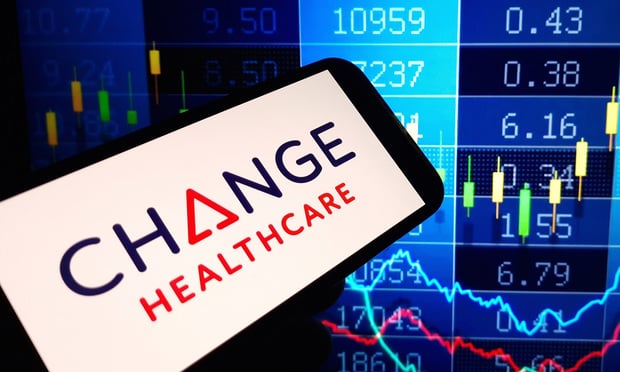A pill embedded with a sensor that can telldoctors—and potentially others—if and when a patient takes his orher medication, recently approved by the U.S. Food and Drug Administration, is touted as asolution to prescription medication nonadherence, which costs theAmerican health care system between $100 billion and $289 billion ayear, according to a review in Annals of Internal Medicine. Andthose are just the financial costs. It also causes about 125,000deaths annually, the article says.
|While acknowledging the medical and financial benefits of theso-called digital pill, health care and data privacy lawyersexpressed concerns about data security and patient consent.
|“The slippery slope danger is really real,” said MichaelWhitener, a data privacy expert and partner at VLP LawGroup.
|Approved by the FDA earlier this month, the pill, calledAbilify MyCite (aripiprazole tablets with sensor), is a version ofthe antipsychotic medication Abilify that is used mainly to treatpatients with schizophrenia, according to a report by The New York Times. Patients whoconsent to using the technology can allow their physician, as wellas up to four other people, including family members, to receiveelectronic data about the time and date of ingestion of thepill.
|The pill was developed by Otsuka America PharmaceuticalInc. and Proteus Digital Health, a California company thatinvented the ingestible sensor. Otsuka said it plans to introducethe product next year, initially to a limited number of healthplans, according to the Times report.
|It’s the involvement of health plans that worries the dataprivacy attorneys. Now, use of the technology is voluntary, butthey can anticipate a time when pharmaceutical companies,insurers and even employers could offer incentives to take thedigital pill, raising the question of whether use in such acircumstance is truly voluntary and constitutes informedconsent.
|“It’s a carrot-and-stick arrangement with an insurance companyor employer,” Whitener said. “You’ve agreed to share the data, buthow are they using the data? Are they using it strictly to see ifyou comply with your treatment, or are they going to try andmonetize the data?”
|Jackson Lewis principal Joseph Lazzarotti, who co-leads thefirm’s privacy, e-communication and data security practice, likenedthe scenario to employers’ increasingly popular workplace wellnessprograms. In its rule-making process, the U.S. Equal EmploymentOpportunity Commission determined that a wellness program could beconsidered “voluntary” so long as the cost incentives—or, seenanother way, the penalty for nonparticipating employees—did notexceed 30 percent of the value of an individual’s health plan.
|But, as Lazzarotti noted, a Washington, D.C., federal judge inAugust dealt a blow to such programs when he ruled inpart that the agency failed to justify its 30 percent cap on costincentives for participating workers.
|“When there are incentives being provided to patients whoadhere, is that authorization or voluntary submission reallyvoluntary?” Lazzarotti said.
|This issue of voluntariness also extends to potentiallycontroversial uses such as requiring digital medication as acondition for release from prison or inpatient psychiatrictreatment.
|“It’s not just a matter of dollars and sense but of personalfreedom under those circumstances,” Whitener said.
|In addition, the lawyers mentioned the issue of data securityand the potential for hacking and use of sensitive medicalinformation by unauthorized individuals.
|Those are the concerns “when you have all this data residing indatabases,” said Linda Pissott Reig, co-chairwoman of the FDA andbiotechnology section at Buchanan Ingersoll & Rooney. “You dohave this expectation of [knowing] where the data’s going toreside, what are the protections, who is going to have access toit. You have to ensure that only those who need to know get toknow.”
Complete your profile to continue reading and get FREE access to BenefitsPRO, part of your ALM digital membership.
Your access to unlimited BenefitsPRO content isn’t changing.
Once you are an ALM digital member, you’ll receive:
- Critical BenefitsPRO information including cutting edge post-reform success strategies, access to educational webcasts and videos, resources from industry leaders, and informative Newsletters.
- Exclusive discounts on ALM, BenefitsPRO magazine and BenefitsPRO.com events
- Access to other award-winning ALM websites including ThinkAdvisor.com and Law.com
Already have an account? Sign In
© 2024 ALM Global, LLC, All Rights Reserved. Request academic re-use from www.copyright.com. All other uses, submit a request to [email protected]. For more information visit Asset & Logo Licensing.








